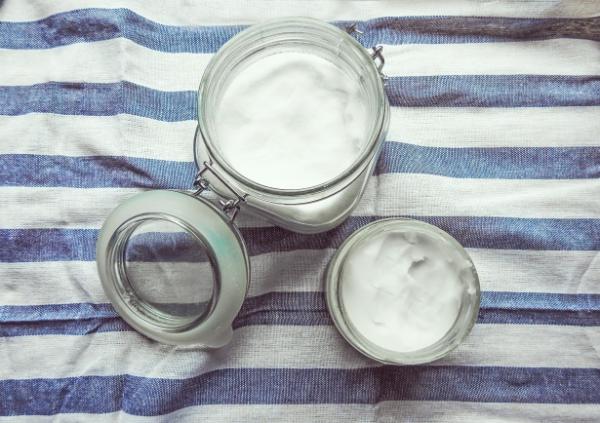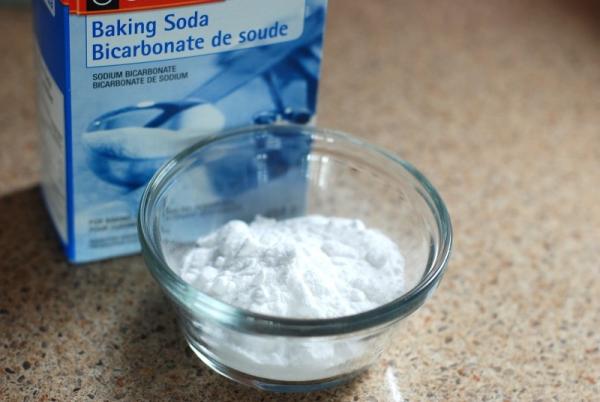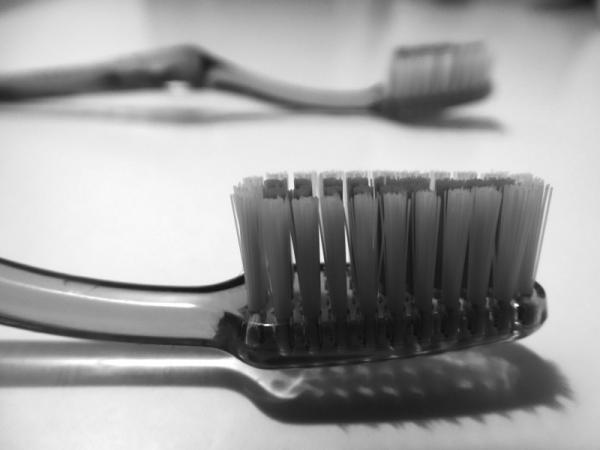How to Remove Coconut Oil from Bed Sheets


Love your coconut oil routine? But hate the greasy stains it leaves on your sheets? You're not alone! Coconut oil, while amazing for skin and hair, can be a nightmare for laundry. Especially on delicate fabrics or dark colors, removing coconut oil stains feels like a battle. But fear not! With the right techniques and a little patience, you can banish those stains and restore your sheets to their pristine glory.
This oneHOWTO guide dives into the most effective ways to remove coconut oil stains from your bed sheets.
Does coconut oil stain sheets?
Just like other oils, coconut oil can leave unsightly marks on your bed sheets, especially light-colored ones made from natural fibers like cotton.
Coconut oil penetrates and clings to fabrics. This is particularly true for cotton and other natural fibers, which are known for their absorbency. Synthetic fabrics might be slightly less prone to staining, but they're not immune.
Furthermore, if you apply coconut oil to your skin and then snuggle into your sheets, the oil can easily transfer and leave behind a stain.
Did you know you can make your own high-quality coconut oil at home? Explore the simple process and enjoy the benefits firsthand. Read more in this other article.

Will coconut oil stain your sheets?
Coconut oil generally does not ruin sheets, as it can be removed with proper cleaning techniques. However, when dealing with delicate bed sheets made of materials like silk or dark-colored sheets, removing coconut oil stains may require more care to avoid damage.
Does coconut oil come out of fabric?
Yes, coconut oil typically can be removed from bed sheets with proper cleaning methods. However, the type of material the sheet is made of plays a crucial role in how easily the oil can be removed. For instance, sheets made of cotton, which is absorbent, may require different cleaning techniques compared to sheets made of silk or synthetic materials.
How to remove coconut oil stains from cotton sheets
To remove coconut oil stains from cotton sheets, make sure to follow these easy instructions:
- Use a towel to blot and absorb as much of the excess coconut oil as possible. This helps prevent the oil from spreading further into the fabric.
- Sprinkle a generous amount of baking soda over the entire stain. Baking soda is absorbent and helps to lift the oil stain from the fabric.
- Allow the baking soda to sit on the stain for about 15 minutes. This gives it time to absorb the oil.
- If clumps of baking soda form, gently scrape them away with a toothbrush. Repeat this step if necessary until the baking soda absorbs most of the oil and no clumps remain.
- Prepare a mixture of hot water with 3 tablespoons of dish soap. Soak the bed sheet in this solution and gently rub the stained area to further loosen the oil.
- After soaking, wash the bed sheet in the washing machine at the highest temperature recommended for the fabric. This helps to further dissolve and remove the oil.
- During the rinse cycle of the washing machine, add a glass of white vinegar. Vinegar helps to break down any remaining oil and also acts as a natural fabric softener.
- Avoid using a dryer as heat can set stains. Instead, allow the bed sheet to air dry in the sun. Sunlight can also help to naturally bleach out any residual stains.
Once the bed sheet is dry, check if the coconut oil stain has been completely removed. If any traces remain, repeat the entire process until the stain disappears.
Now, learn how to keep your cotton sheets feeling fresh and crisp wash after wash.

How to remove coconut oil stains from dark cotton sheets
When removing coconut oil stains from dark cotton sheets, you can follow a similar process as described earlier, but with a few adjustments to protect the color of the sheets.
- Instead of using baking soda, sprinkle a generous amount of cornstarch or arrowroot powder over the entire stain. These powders are absorbent and help lift the oil from the fabric. Allow the cornstarch or arrowroot powder to sit on the stain for about 15 minutes. This gives it time to absorb the oil.
- After 15 minutes, gently brush off or vacuum up the powder from the sheet. This should remove most of the absorbed oil along with the powder.
- In this case, we advise you to prepare a mixture of hot water with 3 tablespoons of dish soap. Soak the bed sheet in this solution and gently rub the stained area to further loosen the oil.
- After soaking, wash the bed sheet in the washing machine at the highest temperature recommended for dark fabrics. This helps dissolve and remove the oil without damaging the color.
- During the rinse cycle of the washing machine, add a glass of white vinegar. Vinegar helps to break down any remaining oil and also acts as a natural fabric softener.
- Avoid using a dryer as heat can set stains and potentially fade dark colors. Instead, allow the bed sheet to air dry in the sun, which can also help to naturally bleach out any residual stains.
Once the bed sheet is dry, check if the coconut oil stain has been completely removed. If needed, repeat the process until the stain disappears.
How to remove coconut oil stains from polyester bed sheets
In the case of polyester bed sheets, the process to remove coconut oil stains is similar to cotton sheets with a few adjustments, primarily regarding water temperature and washing machine settings:
- Use a towel to blot and absorb as much of the excess coconut oil as possible from the stained area.
- Sprinkle a generous amount of baking soda over the entire stain. Baking soda helps absorb the oil from polyester fabric.
- Allow the baking soda to sit on the stain for about 15 minutes.
- Use a toothbrush to gently rub the baking soda into the stain. This helps to lift the oil from the polyester fibers. You may need to rub for a bit longer than with cotton sheets.
- Place the bed sheet in the washing machine. Use a gentle cycle with cold to warm water (up to 40 degrees Celsius, or 104 degrees Fahrenheit, is recommended for polyester). Add your regular detergent and wash the sheet.
- During the rinse cycle, add a glass of white vinegar to help remove any remaining oil and act as a fabric softener.
- Avoid using a dryer as heat can set stains and potentially damage polyester fibers. Instead, air dry the bed sheet indoors or in a shaded area.
Once dry, check if the coconut oil stain has been removed. If needed, repeat the process until the stain is gone.
How to remove coconut oil stains from delicate bed sheets
When dealing with delicate bed sheets, like silk or linen, it's crucial to take a more gentle approach in order to remove coconut oil stains without causing damage. Here is what to do:
- Start by blotting the stain with a paper towel or cloth to absorb as much coconut oil as possible.
- Sprinkle baby powder directly onto the stain. The powder will help absorb the remaining oil. Allow it to sit for about 15 minutes.
- Gently rub the baby powder into the stain using a soft-bristled toothbrush. This helps the powder to absorb more oil from the delicate fabric. Use a credit card (or similar) to gently scrape off the baby powder along with the absorbed oil. Be careful not to press too hard to avoid damaging the fabric.
- In a basin or sink, prepare a mixture of cold water and a few drops of gentle washing up liquid.
- Submerge the stained area of the bed sheet in the prepared soaking solution. Let it soak for about 30 minutes to help lift the remaining oil.
- Avoid using a dryer, as heat can set stains and potentially damage delicate fabrics. Instead, air dry the bed sheet flat or hang it to dry indoors.
- Once dry, check if the coconut oil stain has been completely removed. If necessary, repeat the process until the stain is gone.
Finally, in order to prevent stretching or damaging the delicate fabric while rubbing, place a piece of cardboard underneath the stained area as you work.
Now that your delicate sheets are stain-free, keep them luxuriously soft! Read our other article to learn how to wash flannel sheets for a perfect night's sleep.

If you want to read similar articles to How to Remove Coconut Oil from Bed Sheets, we recommend you visit our Home cleaning category.








